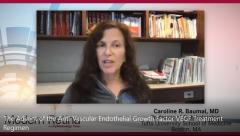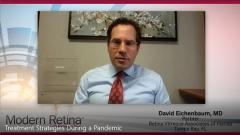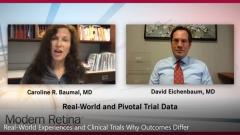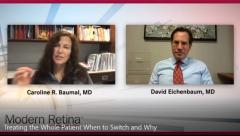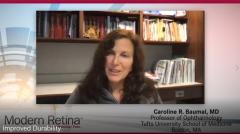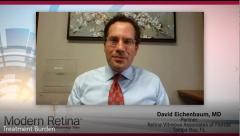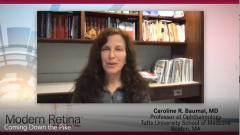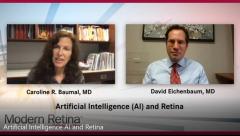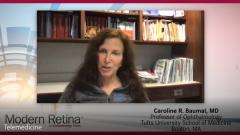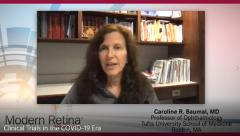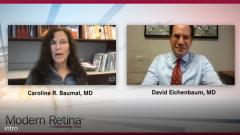
Coming Down the Pike
Episodes in this series

Caroline R. Baumal, MD: Let's talk about future treatment options for neovascular AMD. David, we have a bunch of different classifications of new upcoming treatments. Why don't you tell us about what you think about the future for improving our patient care?
David Eichenbaum, MD: We have a couple of big classes of exciting things that are coming. One is that we have, leading with brolucizumab, a more potent, more efficacious anti-angiogenic monotherapy. Brolucizumab, abicipar as a DARPin, those are the drugs in that sort of milieu.
Those are exciting because we know it's a mechanism that works. Subsequently, we have novel targets, the latest phase study looking at some of the novel targets is the faricimab program which has a lot of promise and performed very well in phase 2 in both diabetic macular edema and exudative AMD. So we have potentially a second mechanism of action for the first time on the heels of these more potent anti-angiogenics. Ahead of that but taking a different tact to get away from individual infections, we have the Port Delivery System (PDS) that has reported positive top-line data in phase 3.
We're superbly excited about the potential for a device that may significantly reduce treatment burden filled with an agent that's kind of old reliable that we've had for 15 years as the concentrated ranibizumab solution inside the PDS. A little further upstream, but something that's superbly innovative and novel and very futurist in its thought are the gene therapies, either intravitreal gene therapy for neovascular macular degeneration, or atrophic macular degeneration, or subretinal gene therapy.
What do you think? Are you excited about the pipeline? What do you think is the most exciting thing of all those kinds of things that are coming?
Dr. Baumal: I'm excited about gene therapy, and I think that has a lot of interesting potential applications. I like to do pediatric retinopathy of prematurity (ROP) and pediatric retina, so I think for AMD it's a really interesting concept. I'm interested to see the different ways it could be delivered to the eye to be effective, and I'm also really interested in the PDS. I think it's great to have a surgical treatment for a medical disease, and so I'm excited to see the final clinical results for that and to be able to potentially treat my patients with refilling the port just one or two times a year. I think that holds great promise.
Dr. Eichenbaum: Gene therapy is super exciting, but I have to balance my excitement by knowing that all of it has only completed phase 1. The graveyard is full of successful phase 1 drugs, whereas the PDS that you mentioned I’m even more excited about because it shows positivity in phase 3. We're almost certainly going to get our hands on it in the real world and be able to bring some of these medical conditions back to the operating room, hopefully with very good success and with minimal risk. As an investigator in that study I've seen mostly the good but a little bit of the bad of a surgical therapy. I think if we could wrap our heads around that process and embrace it and refine it, I think we’ve got something pretty exciting in the short term.
Newsletter
Keep your retina practice on the forefront—subscribe for expert analysis and emerging trends in retinal disease management.

